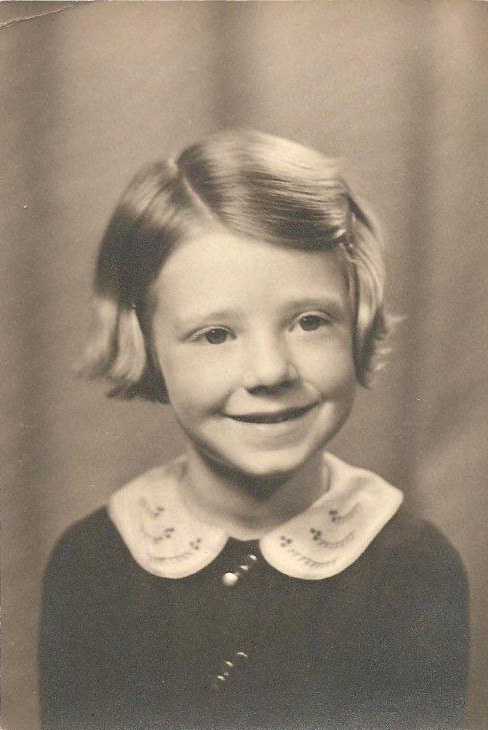From 1932 to 1940 I lived with my parents in Le Vésinet, a peaceful suburb of Paris, where my father worked as Chief Accountant for Lentheric, the well-known perfumery company. At weekends we went to a club where my parents’ friends, English-speaking “ex-pats” like themselves , got together to socialize and play cricket and tennis. I was aware of my English inheritance, but the home I knew was France, with England an exotic place that we visited from time to time for holidays. I was bilingual and switched from English to French without thinking about it; my closest playmates were French, and so was my school.
My peaceful world began to fall apart in early June, 1940, when my mother and I, leaving my father behind in Paris, travelled suddenly to Brittany with another English family. We were on an ordinary seaside holiday, I was told, but I wasn’t taken in. For one thing, the atmosphere in the hotel was strange. There were almost no French guests, their place being taken by a group of tall men speaking English, wearing glamorous blue uniforms: “la Royale Air Force“, as the French called them, usually adding “elle est magnifique, n’est-ce pas?“ (“The Royal Air Force – it’s wonderful, isn’t it?) My mother was soon deep in conversation with them in a low voice. As an only child, I was a practiced listener-in to grown-ups’ conversation. The war, I gathered, was going badly, that famous Maginot line everybody talked about hadn’t worked and the German army was advancing towards us at frightening speed. First Belgium, then Holland, now it was France’s own northern ports that were being swallowed up one by one. My mother wore an expression that I’d never seen before. I didn‘t give it a name, but it was fear.
“You must leave,“ said the men in blue uniforms, “Get away at once,“ – but we couldn’t, we were still waiting for my father, who had the car and was the only one who could drive. He arrived at last, bringing our beloved dog with him. He must have left Paris late, probably on Tuesday 11th June; he told me later that he had driven through the thick pall of black smoke rising from huge oil reservoirs that the French had torched to stop them falling into enemy hands. Three days later German troops were strolling along the near empty streets of the city.
“You must leave…”
Events began to accelerate like a speeded-up film. Now we were packing, flinging things into our suitcases and cramming down the lids. Most things had to be left behind, including toys: I was allowed my best doll. The boot of the car was needed for cans of petrol that the RAF Officers had given us. Once on the road, we kept stopping and starting, sometimes moving no faster than the never-ending procession of men, women and children weighed down with bundles and suitcases, pushing bikes and carts piled high with bits of furniture and mattresses. Some looked up as we passed and I read a kind of despair in their blank faces.
A trip that would take a few hours today took us three days. My father asked us to talk to him, so that he wouldn’t fall asleep. We stopped for the night when he couldn’t drive anymore and my mother knocked on doors asking for a bed. There was a lot of shaking of heads, but a farm took us in that first night. I remember stumbling up a drive and crashing out in the softest of feather beds and waking up next morning to cocks crowing. I walked out alone into a meadow that was a million years away from the distant rumble of guns we’d been hearing. I watched an orange-tip butterfly settle on a flower and told myself I would always remember that moment. The farmer’s wife gave us a good breakfast and when my mother paid her and said goodbye, she wept.
At some quiet stretch of road, my father stopped the car and my mother got out, calling to our dog Lucky, went into a farmhouse. She came out a while later alone, holding the collar and lead. I asked what had happened to Lucky and was told she would be looked after until the end of the war when we would come back and fetch her. It would be many years later that I finally understood that my mother hand arranged for our adored dog to be shot.
Read the second part of Daphne Wall’s story here: Flight from France: from Bordeaux to London
Comment on the story here.



